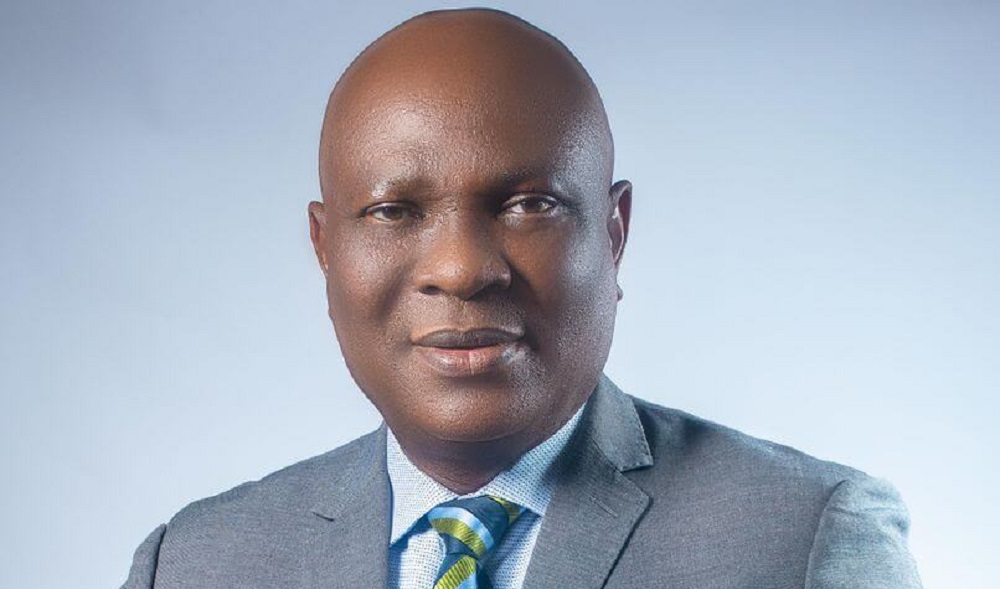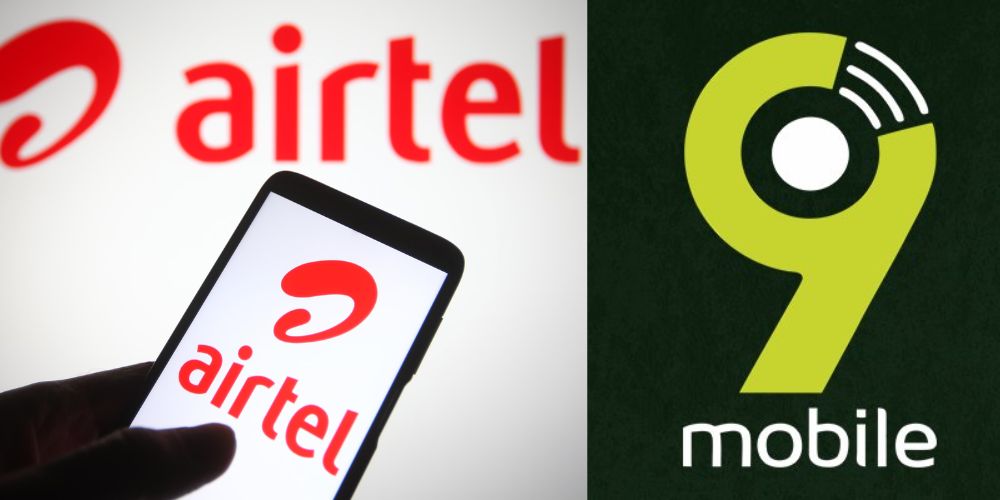Multiple Bank Charges Dig Deep Into Customers’ Accounts
The recent decision by one of the deposit money banks (DMBs), Sterling Bank, to eliminate transfer charges has triggered debate about the thorny issue of bank charges and how customers are becoming increasingly displeased by the multiplicity of charges incurred from carrying out banking transactions, Weekend Trust reports.
Because it happened on April 1st, 2025, many people thought it was a prank conjured up as another April Fools’ joke until the bank came out to confirm its authenticity. It was an announcement that many bank customers did not expect, given how they have been pushed almost to the precipice with countless charges.
Despite the Central Bank of Nigeria’s (CBN) drive to promote financial inclusion, experts say the multiple bank charges are a disincentive to the drive.
According to the Enhancing Financial Innovation and Access (EFINA), 4.7 million people are financially included in Nigeria, which represents just 2.06 per cent of the 237 million estimated population of the country.
According to data released by the Nigeria Inter-Bank Settlement System (NIBSS), the number of active bank accounts in Nigeria jumped to 219.6 million in March 2024.
This represented a significant increase when compared with the previous data released. Earlier, NIBSS released the number of account numbers for 2022, which showed that there were 151 million active bank accounts in the country at the end of that year.
Despite this, the Minister of Finance and Coordinating Minister of the Economy, Wale Edun, revealed that only about 5 per cent of the Nigerian banking population has up to N500,000 in their accounts.
Over time, analysts say Nigeria has made steady but slow gains in promoting financial inclusion and many people attribute the development to the multiplicity of bank charges.
Nigerian banks impose various charges on their customers, including transfer fees, account maintenance fees, SMS alert fees, ATM withdrawal fees, and levies like the cybersecurity levy.
For instance, if a customer is transferring money using a different bank, this attracts three charges, including the transfer fees or commission, value-added tax (VAT) on the transfer as well as an SMS charge. Then, if the transfer is N10,000 or more, the receiving account is also charged N50 for electronic money transfer levy.
The EMTL represents a fee on financial transfers made electronically within the country. The CBN also recently introduced it on transfers made through the financial technology companies popularly known as Fintechs.
Many Nigerians migrated to Fintechs to avoid some charges imposed by the deposit money banks until recently when the federal government implemented the EMTL charge on Fintechs, which means that any transfer from N10,000 and above, the receiving account would be charged N50.
Tales of woe
From across the country, bank customers have expressed frustration over the multiple charges on transactions, saying that the development is driving many away from the conventional banking system.
In Abuja, a bank customer, Yusuf Zamani, lamented how charges are discouraging him from depositing money into his account again.
“I have a current and domiciliary account with one of the major banks and I am just tired. I woke up last month to a $10 charge for account maintenance and another $20 for card maintenance. That is extortion for me. Over N45,000 equivalent of charges imposed on an account I barely use,” he said.
He also lamented how his bank once deducted over N6,000 as an account maintenance fee on his current account.
He added that when he enquired, he was told, “It is because of the ‘volume of transactions’ that he does.”
Another Customer with one of the top-tier banks, Chinedu Ani, told the Weekend Trust that banks are ripping off customers because there are no regulations or a lack of enforcement and oversight.
“I don’t know how many kinds of charges we have now, as if there is no regulator to tame these banks. From card maintenance to transfer charges to VAT and all kinds of ridiculous charges, I wake up almost every day to deductions even when I didn’t do any transaction,” he said.
He added that while customers are lamenting, the banks are declaring huge profits. “Look at how the banks are cashing out while their customers are suffering. It is just unacceptable,” he added.
In the same vein, Hauwa Bala, also a bank customer, noted that she opened another account because of the incessant charges.
Her words: “You can’t just transfer and breathe. From one charge to another, that is why I opened another account. Even though they imposed a N50 charge, it is still better for me because their transfer is seamless.”
She also called for intervention from the regulators to reduce the number of charges on customers.
Kayode Williams, a senior sales officer in Lagos, said, “Bank charges are something else now. They are over-extorting us; you can’t keep your money in commercial banks without it depreciating. You can get debited as high as N400 before you wake up, and they charge between N30 to N50 for daily transactions, that’s why a lot of us prefer digital banks that charge little or nothing, with faster and more reliable services.
“I currently use Opay and Renmoney for my transactions, but I have commercial banks like UBA, GT and Polaris where I also keep money.
“It spoils your money; sometimes you budget a particular amount (a round figure) for a particular reason, but you get to see that you can’t use the money because of absurd charges.”
John Showemimo, a Lagos resident, said the poor people are feeling the pinch of the multiple bank charges.
“This policy doesn’t help the common man. Let me break it down: If I use a POS agent to withdraw N20,000, I’m charged N500. If I try to avoid that and go to my bank’s ATM, I’ll spend about N600 on transport to and from the nearest branch.
“What am I supposed to do? The new ATM charges just make things worse. Most of us don’t live near our banks. And even when we get there, sometimes their machines are not working, or they are only giving out small amounts per transaction, which forces you to withdraw multiple times and get charged for each. This system is frustrating. It’s like they’re pushing us to stop using banks altogether,” he said.
Iya Bode, a small business owner, said, “I withdraw money multiple times a day — now I’m losing more than I’m earning.
“I run a small shop where I buy and sell food items. Every day, I go to the market to restock. I withdraw money at least five times a day because I don’t keep large cash amounts in the shop for safety reasons.
“Before, using my bank’s ATM was manageable, but now they’ve added more charges. POS agents are even worse — they charge ridiculous fees per transaction. This policy is punishing those of us who are struggling to survive. How much profit do I even make from my trade? N500 here, N300 there — but at the end of the day, I’ve spent over N1,000 just on withdrawal charges.
“It’s too much. If the government really wants to promote cashless transactions, this is not the way.”
New ATM charges
In February, the CBN introduced new ATM charges for both “on-site” and “off-site” withdrawals.
On-site ATM withdrawals are those made at a machine owned by a bank but outside its branch premises, while off-site ATM withdrawals are those at shopping centres, airports or standalone cash points.
The revised fees, announced in a circular on Monday by Acting Director of the Financial Policy and Regulation Department, John Onojah, took effect from 1 March.
Under the updated framework, on-site ATM withdrawals—those made at a machine owned by a bank but outside its branch premises—will now attract a charge of N100 per N20,000 withdrawn.
Off-site ATM withdrawals, such as those at shopping centres, airports or standalone cash points, will incur a N100 fee plus a surcharge of up to N500 per N20,000 withdrawal, bringing the total possible charge to N600 while withdrawals from an account holder’s own bank ATM remain free.
But the CBN has justified the review, saying it was “in response to rising costs and the need to improve the efficiency of Automated Teller Machine (ATM) services in the banking industry.”
“This review is expected to accelerate the deployment of ATMs and ensure that appropriate charges are applied by financial institutions to consumers of the service. Accordingly, banks and other financial institutions are advised to apply the following fees with effect from March 1, 2025,” it said.
Banks explain charges
Amidst the rising bank charges, commercial banks have been declaring huge profits in recent times which many people say is in stark contrast with the state of the economy.
A recent report , indicated that seven top Nigerian banks pocketed a staggering N4.2 trillion profit in the 2024 financial year.
Zenith Bank, United Bank of Africa (UBA), Guaranty Trust Holding Company (GTCO), First Bank, Fidelity Bank, Stanbic IBTC and Wema Bank collectively generated huge profits despite the economic headwinds in the country.
It reported further that inflation, naira depreciation, and declining consumers’ purchasing power were some of the challenges the banking sector recorded last year.
In their 2024 financials, filed with the Nigerian Exchange Limited (NGX), some of the lenders’ gross earnings grew significantly with staggering profits.
‘Banks are not greedy’
But speaking recently, the Managing Director of Sterling Bank, Abubakar Suleiman, explained the operational challenges and costs incurred by banks in providing the bespoke services desired by customers.
Suleiman explained that contrary to the thoughts of some customers, banks are not greedy or have the intention of taking all their money. However, modern payment systems leverage a tremendous amount of technology, which requires huge amounts of investment, he said.
“Whenever you see an instant payment that moves quickly, there are at least eight or nine different softwares of which the majority of them are imported; and they are necessary solutions to protect your data and to ensure that we can trace your money.
“So much is invested by banks and that is why we have to charge to recover that money. I guarantee you that it doesn’t even cover the full cost. A lot of the cost that goes into technology doesn’t even show as technology cost.
“In addition to that, a lot of losses that are suffered during instant payments are borne by the banks. We are not operating with the mindset of just charging; we charge because we are dependent on very expensive systems that we now trust to recover the money from this billing,” the managing director stated.
‘Why we abolished transfer charges’
Suleiman stated further that the bank decided, having achieved significant improvements in their systems and discontinued some of the foreign software, to give back some value to their customers.
“It goes beyond that because even if we don’t charge, every time you do a transfer, there is a switching company that has to be paid. We are now committing, in addition to giving up our own revenue, to pay whenever a customer does this transaction because it has to be paid for.
“Our view is that every single service charge that we eliminate can actually improve transactions. The more people know that it doesn’t have to cost a dime to transact, the more they are likely to transact. This is actually changing our relationship with existing customers.”
He, however, stated that the new policy was solely for existing customers and customers who would come on board in the next couple of months.
“We are not doing it for our new customers per se; our priority is the customers that have always banked with us. We are giving this back to them. They just have to remain loyal to us, and we are giving them a reason to remain loyal.
“Of course, we would appreciate it if they brought in more people to come and bank with us. We also plan to extend this reward to customers who come on board in the next couple of months. We will make a decision whether we will extend it but at this point, our target is existing customers and those who come on board,” he said.
Experts speak
Professor of Economics, Ndubisi Nwokoma, speaking with our correspondent, said the multiple charges imposed on banking transactions are limiting the trust Nigerians have, in the financial institutions.
He said the result of this part of the decision to patronise Ponzi schemes despite the inherent risks, while citing the recent case of CBEX, which crashed, with many Nigerians losing their money.
According to him, depositing in banks doesn’t guarantee a return on investment like many Nigerians would desire, hence the decision to embrace Ponzi schemes.
“The charges on the bank are quite enormous, and the returns are very little. Many people don’t want to use banks these days; some people prefer cash payment because any money in any transaction that takes place, the receiver actually gets less than the value. So, a number of times, people want you to pay them in cash. So the deposit rate is very low. If the people see any promise to get their money to grow faster, they fall in for it.
“When the formal channel does not give you what you should get, people now look for informal channels.”
The economist called for the strengthening of the conventional financial system to make it more functional and friendly to customers.
State chairman of the National Association of Small and Medium Enterprises (NASME), Prof. Adebayo Adams, said the charges on customers are responsible for what he called ‘the humongous profits’ declared by banks.
Source: Daily Trust




